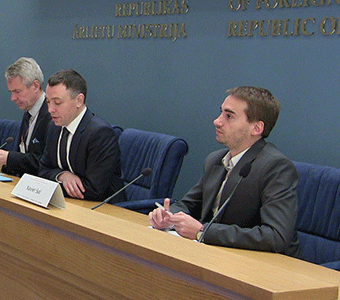In June, Latvian Green Movement co-organised the high-profile Riga International Roundtable Financing for Development: Role of EU Member States. Participants included policy makers, journalists, representatives of development finance institutions and civil society and academics. At the event, countries’ positions on and alternative solutions to development finance were complemented by a view on successes and challenges of development finance so far.
, | 10 July 2015

In June, Latvian Green Movement co-organised the high-profile Riga International Roundtable Financing for Development: Role of EU Member States. Participants included policy makers, journalists, representatives of development finance institutions and civil society and academics.
At the event, countries’ positions on and alternative solutions to development finance were complemented by a view on successes and challenges of development finance so far.
In one of the keynote speeches, Counter Balance’s Xavier Sol provided a civil society perspective on key development issues and especially the role of international financial institutions in the Financing for Development process. He highlighted the need to increase the accountability of those institutions and called for all stakeholders, including CEE goverments to hold to account the private sector in development and monitor its social, environmental impacts and contribution to tax justice.
Urgewald’s Regine Richter spoke about lessons that can be learned from the Mongolian mining sector that has attracted huge interest by both the private sector and development finance institutions. Several projects in the country illustrate the challenges that development finance is facing in the extractive industries.
Never miss an update
We expose the risks of international public finance and bring critical updates from the ground – straight to your inbox.
Institution: EBRD | EIB | World Bank Group
Theme: Development
